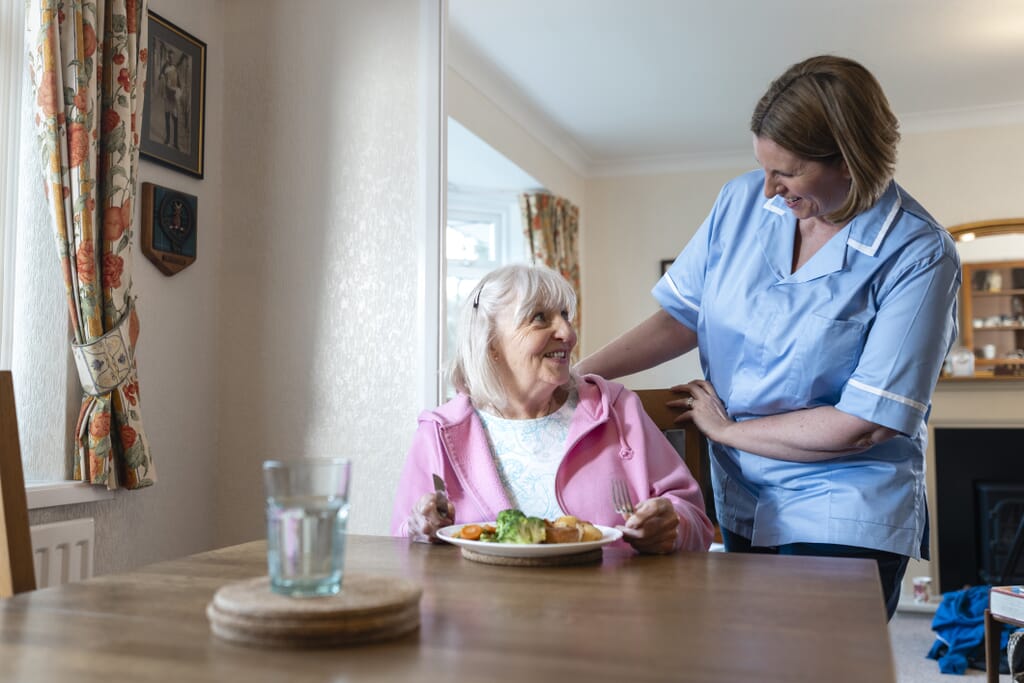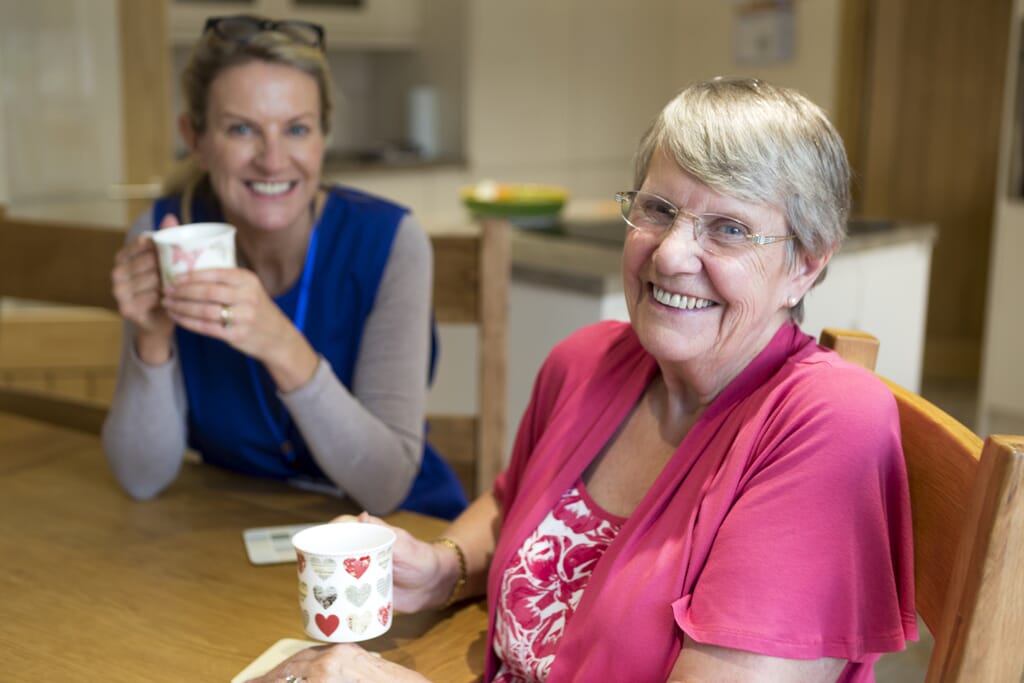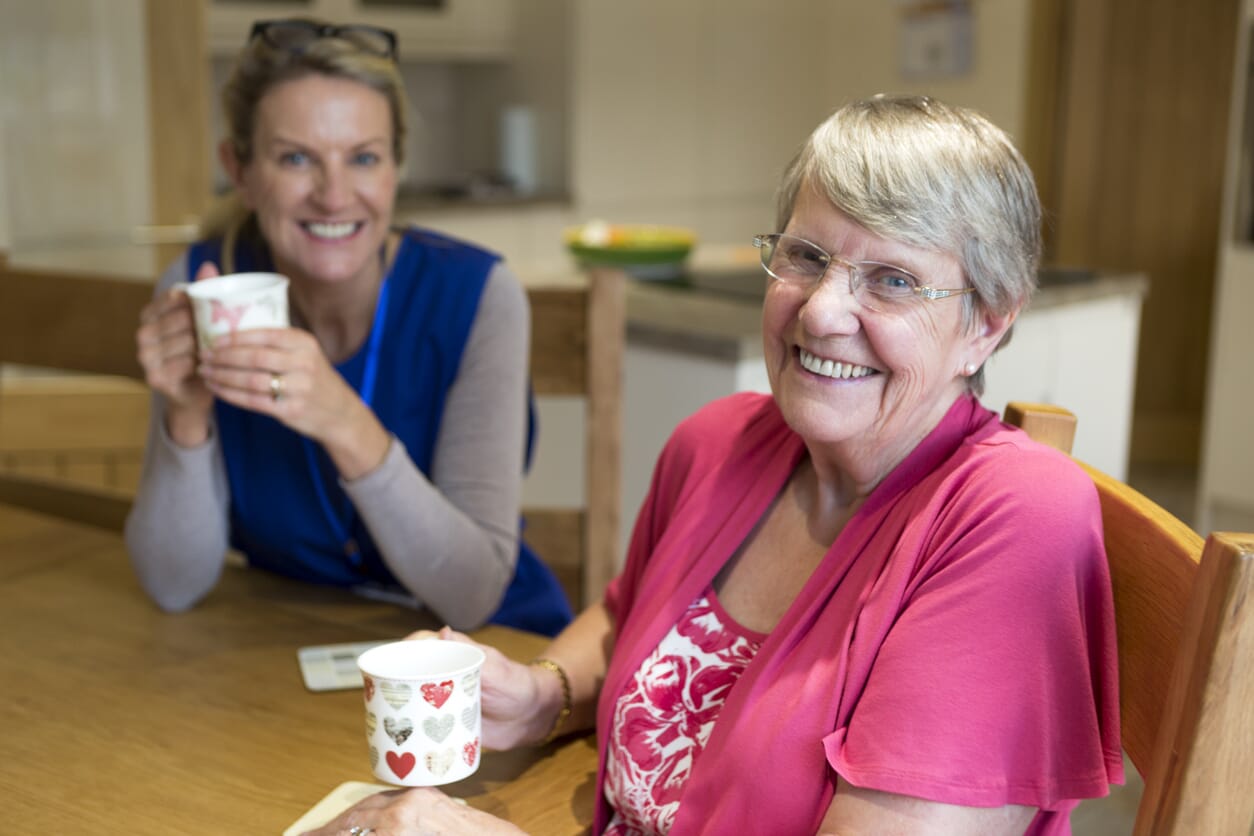Call: 01242 383 773 Or Email us

Complex Care
What type of care is right for your loved one

Finding care for a loved one can be complicated and daunting, as everyone has unique needs, worries, and questions. In this article, we aim to help answer some of these questions, ease your worries, and help you find which type of care is right for your loved one.
What types of home care are there?
There are a few different types of home care; it is important to remember that every type of care is different. Even though we aim to describe each type of care differently, there is flexibility and the ability to personalise the care to your or your loved one’s needs.
Complex Care
Complex care is for individuals with chronic health conditions or severe disabilities. It is comprehensive and often involves a team of healthcare professionals, including doctors, nurses, and social workers. Complex care nurses provide holistic care, covering everything from medication administration to mental health support and managing chronic conditions such as epilepsy and respiratory problems.
Benefits of Complex Care:
- Holistic Approach: Addresses both medical and personal care needs.
- Expert Care: Provided by trained professionals skilled in managing complex health issues.
- Continuous Support: Ongoing care that adapts to the patient’s evolving needs.
To find out more about complex care you can read any of our articles specifically on the subject such as How to know when you need complex care and How does complex care work?
Emergency Home Care
Emergency home care services provide immediate support during crises like sudden illness or injury. It ensures that your loved one receives prompt medical attention and assistance with daily tasks during an emergency.
Benefits of Emergency Home Care:
- Immediate Response: Quick support in critical situations.
- Short-term Solution: Ideal for temporary care needs until long-term arrangements are made.
- Flexible Services: Tailored to the immediate needs of the patient.
Our articles The Importance of Timely Emergency Home Care and What to Expect from Emergency Home Care go into more detail about Emergency home care and can help you decide if it is right for you.
Live-in Care
Live-in care involves a caregiver living with your loved one, providing around-the-clock assistance. This option is perfect for those who prefer to stay in their own homes but need constant support.
Benefits of Live-in Care:
- Personalised Attention: One-on-one care tailored to the individual’s needs.
- Consistency: Continuous care from a dedicated caregiver.
- Comfort of Home: Allows the care recipient to stay in familiar surroundings, maintaining their routines and independence.
Transitioning to sharing your space with a professional caregiver may seem daunting. To help with the change, we have created an article on How to Transition to Live In Care, which can help answer any questions and worries you might have.
24-Hour Care Services
24-hour care services provide continuous support from caregivers working in shifts. This ensures that there is always someone available to assist with any needs, day or night.
Benefits of 24-Hour Care:
- Round-the-Clock Support: Ensures safety and well-being at all times.
- Comprehensive Care: Covers all aspects of daily living and medical needs.
- Peace of Mind: Families can rest assured that their loved one is always cared for.
Independent Supported Living
Independent-supported living is for those who wish to live independently but need some assistance with daily activities. This type of care usually involves regular visits from caregivers who help with tasks such as cooking, cleaning, and personal care.
Benefits of Independent Supported Living:
- Maintained Independence: Supports a self-reliant lifestyle.
- Personalised Care: Assistance is tailored to individual needs and schedules.
- Social Interaction: Encourages community involvement and socialisation.
We have a wealth of information about Independent Supported Living, but the best place to begin is with the basics: What is independent independent-supported living Accommodation?, Financial Planning for Independent-Supported Living, and What is Supported Living? And what are the Benefits?
Personal Care
Personal care focuses on helping individuals with daily activities like bathing, dressing, and grooming. It’s essential for those who have difficulty managing these tasks on their own.
Benefits of Personal Care:
- Dignity and Respect: Helps maintain personal hygiene and appearance.
- Health and Safety: Prevents potential health issues related to poor hygiene.
- Independence: Allows individuals to stay at home and retain some level of independence.
Deciding on the right type of care depends on the specific needs and preferences of your loved one. Whether it’s complex care, emergency home care, live-in care, 24-hour care services, independent-supported living, or personal care, Safehands Healthcare is here to provide expert advice and support. Contact us to discuss the best care solution for your loved one and ensure they receive the compassionate and professional care they deserve.




